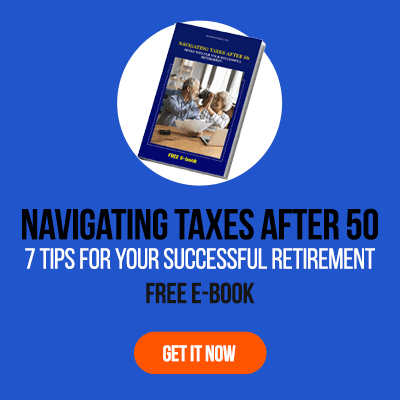Retirement is a wonderful time that many of us look forward to. It’s our long-awaited chance to relax, travel, and indulge in everyday activities and hobbies without worrying about work. However, it can also be quite expensive because the budget we set from the start doesn’t magically grow overnight.
If anything, it empties, which is oftentimes, well, very concerning. One huge mistake many of us could make is underestimating our expenses. While some costs can decrease, others will increase, which might drain our savings even faster. Here’s a list of things that you should watch out for if you want your budget to be properly planned:

The cost of healthcare
Probably one of the most difficult and significant expenses is related to healthcare. As we get older, our bodies require more medical attention and treatments, which can rapidly add up. Besides, Medicare doesn’t even cover all the needed medical costs, which might leave you with many out-of-pocket expenses.
However, planning and saving for possible healthcare costs in the future is mandatory if you don’t want to be shocked when you check your account. The best thing you can do is get a supplemental health insurance plan or even set up a health savings account (HSA) while working.
Supporting adult children
Many retirees still support their adult children with money, whether through helping with their college tuition or even providing full financial assistance during difficult times. It’s true that no one should stop you from helping your children, but it’s very important to prioritize your retirement savings first.
If you want to help them, you should still decide on a set of boundaries and find ingenious ways to help them while encouraging financial independence. You could also discuss potential expenses with them and decide on a plan together.
Homeownership costs
Owning a home during retirement can cost you a lot of money. After all, you have to deal with property taxes, insurance, and even maintenance costs, which could slowly add up. The older we get, our homes could require a series of changes and modifications to make them more accessible, which will also require financial investments.
As an alternative, you might want to consider downsizing or even moving to a more affordable location to avoid these expenses. You could also look into reverse mortgages and home equity loans to help with costs.
Travel and leisure expenses
Oftentimes, retirement is seen as a time to travel and fully indulge in your favorite activities. But nevertheless, these expenses could rapidly eat away at your retirement savings, especially if you don’t pay attention. Whether we’re talking about vacations, dining out, or even hobbies, they can all add up, especially if you live on a fixed income.
To effectively avoid overspending, you might want to create a budget for travel and other leisure activities. Make sure you search for deals and discounts and also explore a bunch of other alternatives, such as house sitting and swapping. You could also find free and low-cost hobbies to enjoy during retirement.
Supporting aging parents
As you might be in a position to financially help your adult children, you could also find yourself helping your aging parents with money. Whether it’s about covering medical expenses, assisting with living costs, or simply keeping them in your home, it’s still financial aid.
If that’s something that deeply bothers you, it’s mandatory to communicate openly and honestly with your parents about their own financial situation and create a proper plan together. You might also want to look into the various resources available for elderly care and support.
Inflation
Even though it may not seem like a significant expense in the short term, it could have a great impact on your retirement savings in the long run. To deal with inflation, you need to make sure your retirement savings are invested in assets that have the potential to grow and keep up with inflation. You want to consider all your options, from working part-time during your golden years to having multiple income streams.

Long-term care
As we age, our chances of needing long-term care increase. This could also involve assisted living, nursing homes, or even in-home care. These types of costs could rapidly accumulate, slowly exhausting the larger part of your retirement savings, especially if you need preparation time.
A good piece of advice would be to purchase long-term care insurance while you’re still young and healthy to avoid unpleasant and unforeseen expenses. Start your research and try to compare different care options and their costs.
Taxes
So many seniors out there need to realize that they might need proper help to pay their taxes on their retirement income. Depending on your sources of income, you could owe federal and state taxes and a series of other local taxes. You could work with a financial advisor to create a tax-efficient retirement plan and minimize your tax expenses. Consider moving to a state with lower taxes during retirement.
Debt
Debt can represent a real burden, especially during retirement. If you are carrying debt into retirement, your monthly payments could also eat away at your savings, leaving you with less money for other types of expenses. Before you retire, make sure you create a plan to pay off as much debt as you can. Consider downsizing your lifestyle, reducing some expenses, and saving money for debt repayment.
Unexpected expenses
Let’s be honest: life is filled with unexpected events. Why would it be any different during retirement? From home repairs to emergency medical expenses, unexpected costs could rapidly drain your savings, especially if you are completely unprepared for them.
To avoid being completely caught off guard, you should make an emergency fund specifically for this type of expense. Also, consider reviewing and increasing your insurance coverage to efficiently guard against any type of unforeseen cost.
Divorce
Nowadays, divorce is increasingly common among older adults. That’s probably why they like to call them “gray divorces.” Unfortunately, this could have a significant impact on your retirement savings, especially since assets are mainly split between parties and living costs increase.
If you want to efficiently save money, make sure you openly communicate with your partner about your finances. Consider creating a prenuptial agreement or even working with a financial advisor to plan for other types of unexpected outcomes.
Unused membership
Seniors might have more free time, which could potentially lead to signing up for memberships and subscriptions for different services and activities. But if any of these things are used sparingly, they could become a totally unnecessary expense.
Make sure you carefully consider your interests and needs before you sign up to save money on any kind of unused membership. You could also look for different options that offer senior discounts or flexible cancellation policies.
But naturally, there’s way more to learn when it comes to this subject. That’s why we recommend you read “Retirement Money Secrets: A Financial Insider’s Guide to Income Independence” by Steve Selengut.
It’s a great insight into an effective system for investing. As Steve Selengut says, it shouldn’t be a secret, even though it is. You will learn how to build a reliable income without needing to sell any of your hard-earned investments. Give it a try!
Are you looking for more insights? Check out the book “Divorce the IRS: How to Defuse Your Biggest Tax Time Bombs Before You Retire” by James G. Miller.
If you enjoyed reading this article, we also recommend reading: Emotional Impact of Caregiver Guilt and 7 Ways to Overcome It























